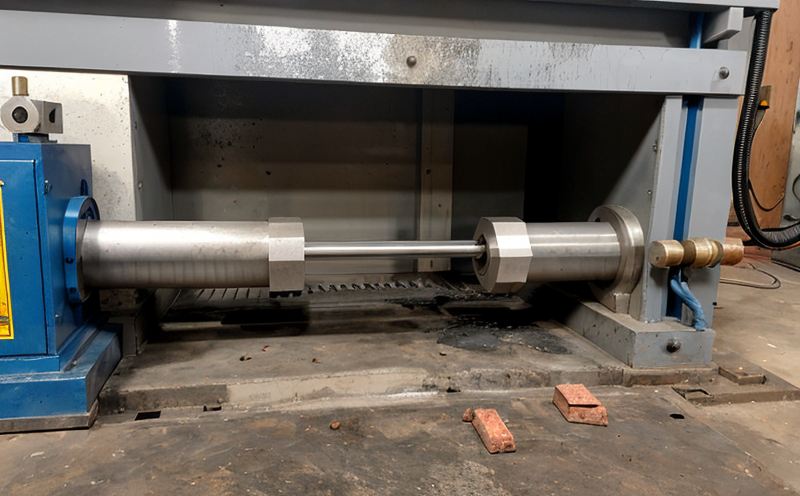ISO 527 Tensile Testing of Plastics
The ISO 527 standard series is a widely recognized international set of guidelines that provides procedures for tensile testing of plastics. This service focuses on the specific application of these standards to evaluate mechanical properties, particularly in determining the tensile strength and other parameters like elongation at break. For quality managers, compliance officers, R&D engineers, and procurement professionals, this service ensures that materials meet the stringent requirements set forth by international standards.
The process involves meticulous specimen preparation under controlled environmental conditions to ensure accurate results. Specimens are typically cut from larger samples using precise methods recommended in ISO 527-1, ensuring they are representative of the material being tested. The testing apparatus used is a tensile testing machine capable of applying defined loads with high precision and repeatability.
The procedure for conducting tensile tests on plastics involves several critical steps. Initially, specimens must be conditioned to the appropriate temperature and humidity as specified in ISO 527-1. This ensures that the material properties are stable and comparable across multiple tests. The testing machine then applies a controlled load at a specific rate until failure occurs.
The results of these tests provide crucial data on the material's ability to withstand stress, which is essential for quality control and product design. Engineers can use this information to optimize material selection and manufacturing processes, ensuring that products meet the necessary performance criteria.
For plastics, it’s important to note that the type of polymer being tested significantly impacts the testing procedure. For instance, amorphous polymers may exhibit different behavior compared to crystalline ones due to their molecular structure. Understanding these nuances is key to accurate and meaningful test results.
The tensile modulus, another critical parameter derived from this test, provides insights into how a material deforms under load before breaking. This information is invaluable for predicting the performance of materials in real-world applications where they may experience varying levels of stress.
In summary, ISO 527 Tensile Testing of Plastics is a robust method that ensures the reliability and quality of plastic materials used in various industries. By adhering to these standards, manufacturers can ensure compliance with international regulations while enhancing product performance.
Applied Standards
The ISO 527 series applies to tensile testing of plastics across a broad range of applications and material types. Key standards include:
- ISO 527-1:2019 – General Requirements for Tensile Testing of Plastics
- ISO 527-3:2018 – Determination of Elongation at Break and Breaking Force
- ISO 527-4:2019 – Determination of Tensile Modulus in the Linear Elastic Range
These standards ensure that tests are conducted under consistent conditions, providing reliable data for material evaluation.
Eurolab Advantages
At Eurolab, our commitment to excellence is reflected in every service we provide. With decades of experience and a team of highly skilled professionals, we offer unmatched expertise in mechanical property testing.
- Accurate Results: Our state-of-the-art equipment and rigorous quality control ensure precise test results that meet international standards.
- Comprehensive Reporting: We provide detailed reports that include all necessary data points, making it easier for clients to understand the implications of their materials' performance.
- Industry Knowledge: Our team stays current with the latest industry trends and regulatory changes, ensuring that our testing methods are always up-to-date.
- Client Satisfaction: We prioritize customer needs, offering flexible scheduling, competitive pricing, and exceptional service.
Choosing Eurolab means choosing a partner committed to delivering high-quality services tailored to your specific requirements.
Use Cases and Application Examples
- Automotive Industry: Ensuring that plastic components can withstand the stresses of vehicle operation without failure.
- Consumer Goods: Evaluating packaging materials for durability and safety in shipping conditions.
- Aerospace: Assessing material performance under extreme conditions to ensure reliability.
- Medical Devices: Verifying that components meet stringent biocompatibility and durability standards.
- Construction Industry: Testing materials used in infrastructure projects for strength and stability over time.
- Furniture Manufacturing: Ensuring the longevity of furniture parts made from plastic materials.
In each case, accurate tensile testing is crucial to meeting performance expectations and regulatory requirements.





